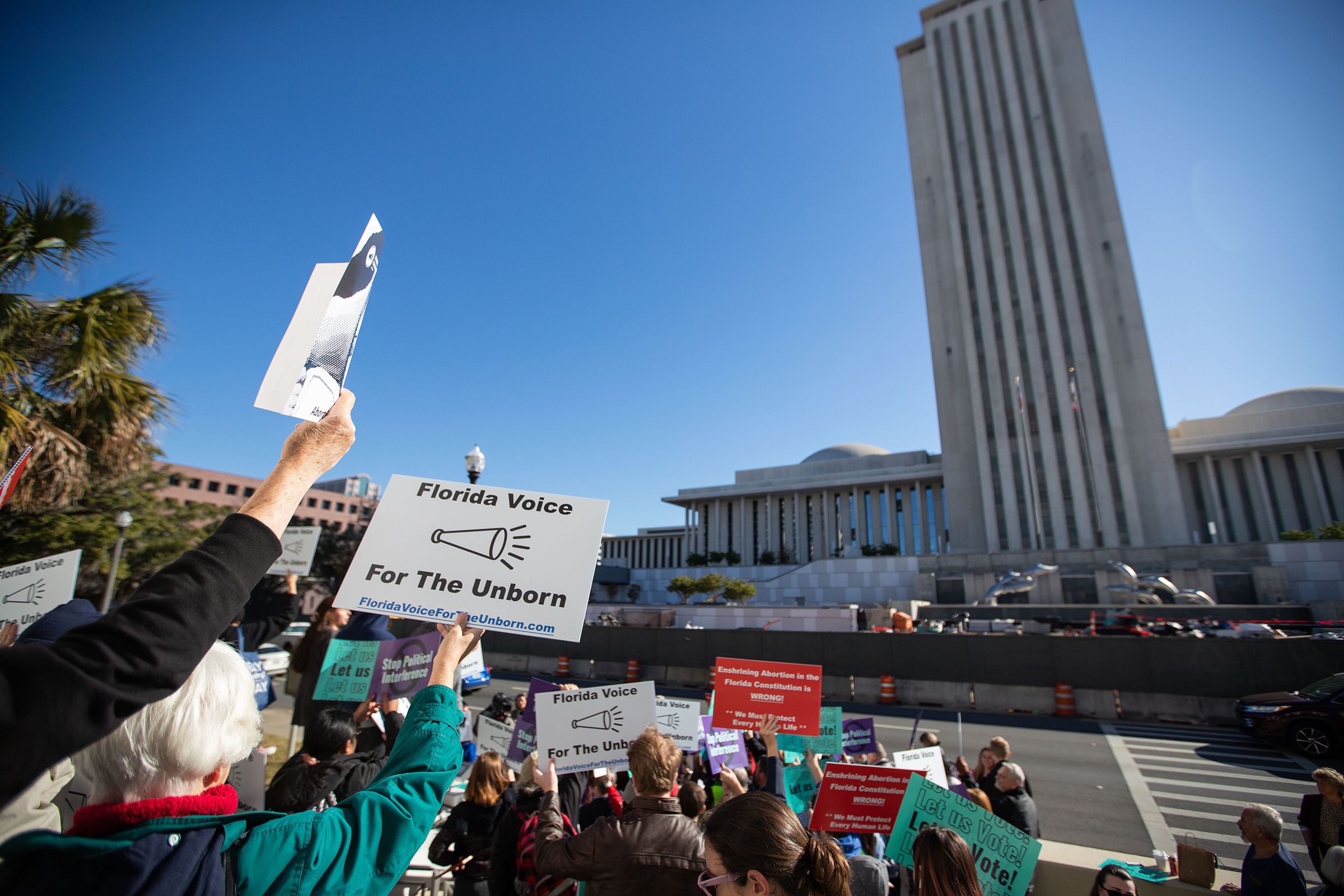In a landmark decision, the Florida Supreme Court on Monday cleared the path for the state’s six-week abortion ban to come into effect, while simultaneously permitting Floridians to vote in the fall on whether to enshrine abortion protections in the state’s constitution.
The state Supreme Court upheld Florida’s current 15-week ban on abortion, thereby activating a six-week abortion ban approved by Florida lawmakers last year. The law is set to take effect in 30 days. However, in a separate ruling, the court approved the wording of a proposed state constitutional amendment that would safeguard the right to an abortion in Florida, allowing it to appear on the ballot as Amendment 4 this November. This amendment could potentially overturn both bans.
Constitutional amendments in Florida require the support of at least 60% of voters for approval. These rulings will position Florida as one of the most restrictive states in the country for obtaining an abortion and will ignite a presidential-year battle over reproductive rights in the Sunshine State.
The Biden campaign on Monday labeled Florida, a longtime swing state that has leaned Republican in recent elections, as “winnable” in November as it seeks to rally voters around abortion rights. With the measure set to appear on the state’s ballot, Florida will join several other states, including Michigan and Ohio, where voters have directly weighed in on reproductive rights since the US Supreme Court overturned Roe v. Wade.
The initiative could also stimulate voter turnout in what is expected to be a close rematch between President Joe Biden and former President Donald Trump. In January, Floridians Protecting Freedom, the coalition behind the ballot initiative, collected just under a million signatures of registered voters to qualify for Florida Supreme Court review.
The proposed amendment’s language reads: “No law shall prohibit, penalize, delay, or restrict abortion before viability or when necessary to protect the patient’s health, as determined by the patient’s healthcare provider. This amendment does not change the Legislature’s constitutional authority to require notification to a parent or guardian before a minor has an abortion.”
Lauren Brenzel, campaign director for Yes on 4, expressed her excitement about the opportunity for Floridians to reclaim their bodily autonomy and freedom from government interference by voting for Amendment 4 this November.
Implications of the Ruling on Abortion Access
Florida’s Republican Gov. Ron DeSantis last April signed the law banning most abortions after six weeks, before many women know that they are pregnant. The bill’s enactment was delayed after Planned Parenthood and other abortion rights groups sued to overturn a law signed by DeSantis in 2022 to ban abortions after 15 weeks.
For decades, courts in Florida have blocked legislative attempts to restrict abortion in the state. However, on Monday, the court, which includes five DeSantis appointees, retreated from the decades-long protections linking the privacy provision in the state constitution with a woman’s right to an abortion, allowing the ban to move forward.
This ruling is expected to significantly impact abortion access in the southeastern United States. Alexandra Mandado, president and CEO for Planned Parenthood of South, East and North Florida, called the ruling a “grave setback to human rights in our state.”
Court Also Rules on Recreational Marijuana Amendment
The court on Monday also approved ballot language on Amendment 3, which will allow Florida voters to decide whether to legalize recreational marijuana in November. The amendment will also need approval from 60% of voters to pass.
Biden Campaign Sets Its Sights on the Sunshine State
The Biden campaign argued in a new memo Monday that the president’s campaign “is in a stronger position to win Florida this cycle than he was in 2020,” as it seeks to mobilize voters around abortion rights while contrasting Biden’s record with that of Trump.
This story has been updated with additional information. CNN’s Steve Contorno, DJ Judd, Scott Glover, Randi Kaye, Nelli Black, Michelle Lou and Brandon Griggs contributed to this report.

